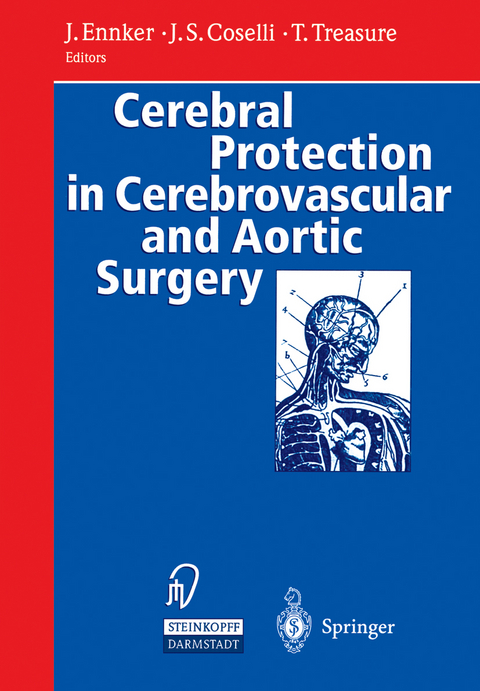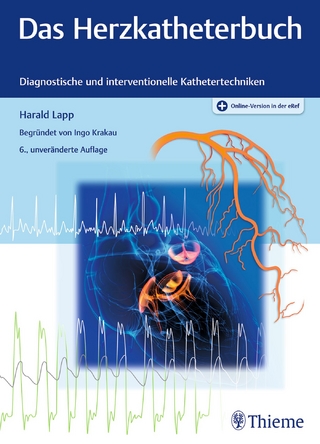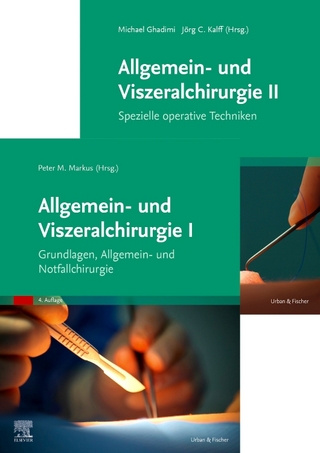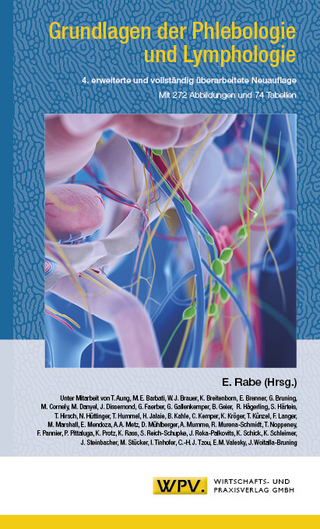
Cerebral Protection in Cerebrovascular and Aortic Surgery
Steinkopff (Verlag)
978-3-642-95989-9 (ISBN)
Cerebral Protection in Cerebrovascular and Aortic Surgery presents the current knowledge of understanding causes and pathogenesis of cerebral damage during surgery on the aortic arch and supraaortic vessels and prevention of brain damage by specific surgical therapy.
Prof. Dr.med. Jürgen Ennker ist Ärztlicher Direktor des Herzzentrums Lahr, Autor zahlreicher Fachbücher und Ratgeber.
Protection, diagnosis and treatment of cerebral ischemia.- Neuroprotection in cerebral ischemia.- PET, MRI, and MRS for imaging of functional brain disorders.- Expression of ICAM-1 and VCAM-1 on endothelial cells after global cerebral ischemia and reperfusion in the rat.- Cerebral protection during neurosurgical operations.- Intensive care of acute ischemic stroke.- Cerebral protection in Cerebrovascular Surgery.- Anesthesia in cerebrovascular surgery.- Neuromonitoring during carotid artery surgery: Somatosensory evoked potentials versus transcranial Doppler sonography.- The choice of method for cerebral protection from ischemia in carotid endarterectomy.- SEPs monitoring during carotid surgery: reliability and limitations.- Effect of myocardial revascularization on the blood flow volume in carotid arteries.- Cerebral protection during simultaneous cerebrovascular and cardiac surgery using extracorporeal circulation for both procedures.- Cerebral protection in the pediatric age group.- Studies of hypothermic circulatory arrest and low flow bypass as used for congenital heart surgery.- Alteration of cerebral blood flow velocity (CBFV) in neonates and infants after cardiac surgery. Relation to occurrence of cerebral injury?.- Change of regional cerebral hemoglobin saturation (rSO2) in children undergoing corrective cardiac surgery of congenital heart disease by means of high-flow cardiopulmonary bypass (CPB).- The relation between arterial oxygen tension and cerebral blood flow during cardiopulmonary bypass.- Cerebral perfusion during low-flow cardiopulmonary bypass with circulatory arrest in rabbits - An experimental study for CPB in neonates.- Neurophysiology, monitoring, cardiopulmonary bypass technique.- Cerebral protection in surgery of the aortic arch: The placeof neurophysiologic monitoring.- Neurophysiological consequences of circulatory arrest with hypothermia.- Cerebral oxygenation during cardiac surgery.- Cerebral ischemia and brain related complications after cardiac surgery.- The role of cardiopulmonary bypass technique in cerebral protection.- Cerebral protection in aortic arch surgery.- Antegrade versus retrograde cerebral perfusion - a review of the recent literature.- Surgery of aortic arch aneurysm - A ten-year experience with cold cerebroplegia.- Aortic arch surgery using antegrade selective cerebral perfusion.- Selective cerebral perfusion for brain protection during surgery of the aortic arch.- Brain monitoring during retrograde cerebral perfusion in operations on the thoracic aorta.- Impact of antegrade perfusion in aortic arch surgery.- Hypothermic circulatory arrest through the left chest.- Retrograde cerebral perfusion in surgery for aortic arch aneurysms.- Chronic dissecting aneurysm of the innominate artery, surgical treatment under retrograde cerebral perfusion.- Retrograde cerebral perfusion - An experimental study to evaluate brain perfusion in non-human primates.- Is there a conflict between clinical and experimental evidence on the benefit of retrograde cerebral perfusion?.
| Erscheint lt. Verlag | 18.2.2012 |
|---|---|
| Zusatzinfo | X, 278 p. |
| Verlagsort | Heidelberg |
| Sprache | englisch |
| Maße | 170 x 244 mm |
| Gewicht | 507 g |
| Themenwelt | Medizinische Fachgebiete ► Chirurgie ► Herz- / Thorax- / Gefäßchirurgie |
| Schlagworte | Aneurysm • Arteries • brain • Bypass • Cardiac Surgery • Cardiovascular • heart • Monitoring • pathogenesis • Pathology • prevention • Surgery • Surgical technique • therapy • Thoracic Surgery • vascular surgery |
| ISBN-10 | 3-642-95989-X / 364295989X |
| ISBN-13 | 978-3-642-95989-9 / 9783642959899 |
| Zustand | Neuware |
| Haben Sie eine Frage zum Produkt? |
aus dem Bereich


